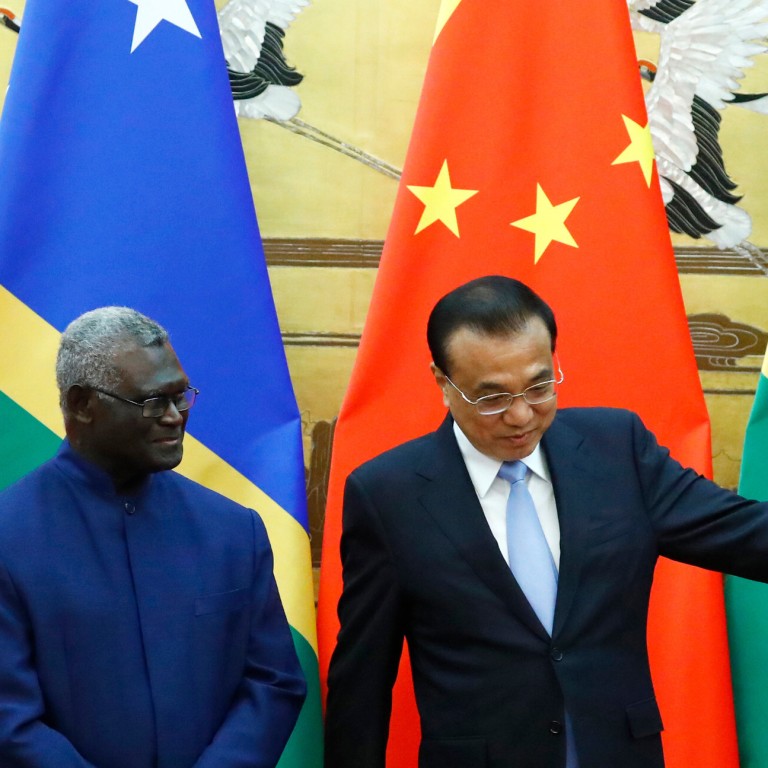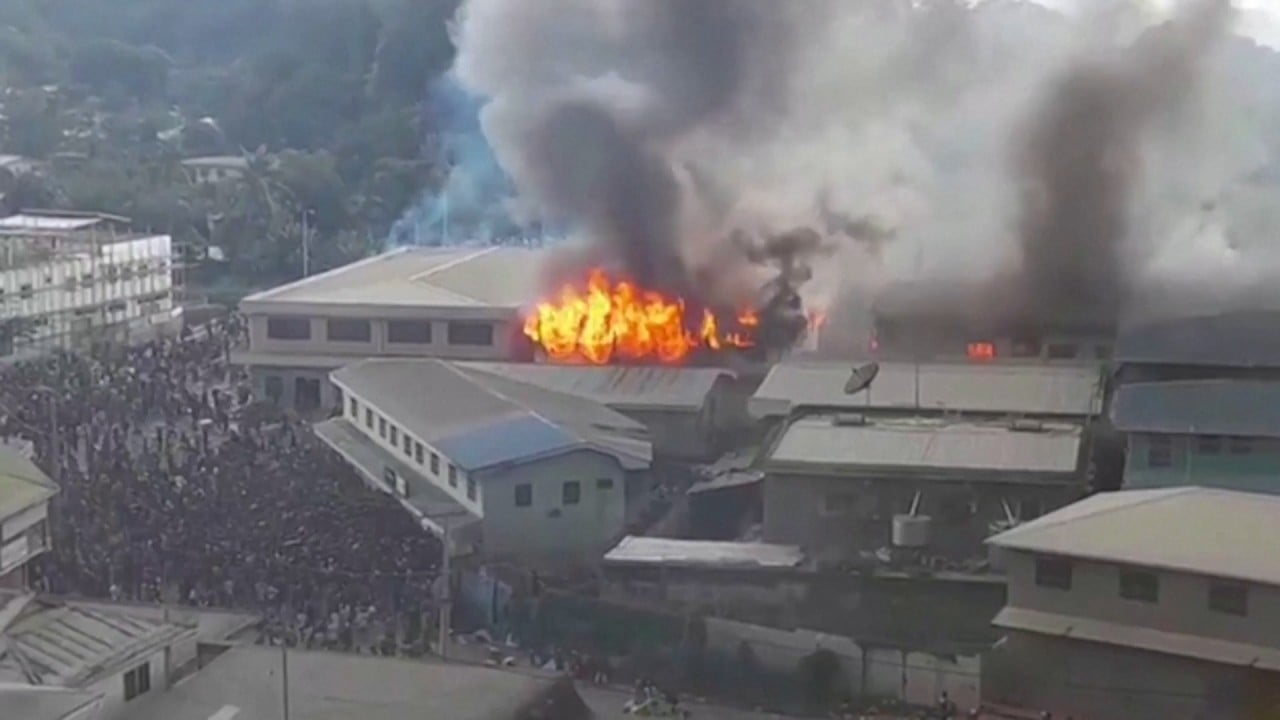
Solomons PM Sogavare says China deal ‘ready for signing’ and Australia, New Zealand remain partners ‘ of choice’
- Manasseh Sogavare told parliament the security agreement, which has alarmed Australia and New Zealand, was being finalised
- He also rejected suggestions that Beijing’s presence was a security threat to the region, adding the island nation would not ‘pick sides’
In an impassioned speech to parliament, Prime Minister Manasseh Sogavare offered little detail on the shape of the final deal beyond saying that there was “no intention whatsoever … to ask China to build a military base in the Solomon Islands”.
He dismissed reports in the Australian media that his country was being “pressured by the People’s Republic of China to build a military base in Solomon Islands”.
“Where does that nonsense come from? The security treaty … is pursued at the request of the Solomon Islands’ government,” he said.
“We are not pressured. We are not pressured in any way by our new friends.”
The islands switched diplomatic allegiance to Beijing from Taiwan in 2019.
Pacific Islands fear fallout as US, China jostle for influence
In his speech on Tuesday, Sogavare confirmed that existing security arrangements with Australia would “remain intact” under the new pact with China, but added that “to achieve our security needs, it is clear that we need to diversify the country’s relationship with other countries – and what is wrong with that?”
China’s growing influence in the Pacific in recent years has fed into a tense relationship with Australia, as has Canberra’s strengthened military ties with the United States and other allies.
The prospect of a Chinese naval base in the South Pacific has long been a concern for Australia and the United States because it would allow Beijing to project its power deeper into the region.
Australia provided immediate police assistance to Sogavare to restore order under a 2017 security treaty, and New Zealand, Fiji and Papua New Guinea later also sent police.
The opposition has accused Sogavare of using a new police pact with China, and striking a security deal, to prop up his leadership, something he has denied.
He said infrastructure gifted to Solomon Islands must be protected, a reference to seven stadiums being built by China in a deal struck after the islands switched diplomatic allegiance.
“If any country does not have the political appetite to do that, we must have an alternative arrangement in place,” he said.
‘We are less afraid’: in Solomons, a calm, but suspicions of China linger
The leaked draft said the security treaty would cover China’s armed police and the military protecting Chinese projects.
Sogavare rejected suggestions that China’s presence was a security threat to the region, adding that Solomon Islands had previously asked Australia to build a naval base and this was refused, because Canberra said it was inappropriate given its defence programme with Papua New Guinea.
Japan steps up Pacific engagement to counter China’s growing influence
Sogavare said he wrote to Australian Prime Minister Scott Morrison on the matter, as well as explaining the Solomons’ position to Fiji, Papua New Guinea and the Pacific Islands Forum, the main regional group for political and economic policy cooperation, in calls.
Australia’s Foreign Minister Marise Payne told parliament on Tuesday that Canberra’s security treaty with Honiara had been extended to 2023, adding diplomats had “regularly and respectfully raised our concern” about the China security negotiations.
New Zealand’s Foreign Minister Nanaia Mahuta, in Fiji, said in a statement five defence personnel would stay in Honiara until May, and her government would “continue to raise our strong condemnation” of Solomon Islands’ proposed agreement with China.
Australia and New Zealand would remain the “partner of choice when it comes to the need to call for assistance in critical times”, Sogavare told parliament.


